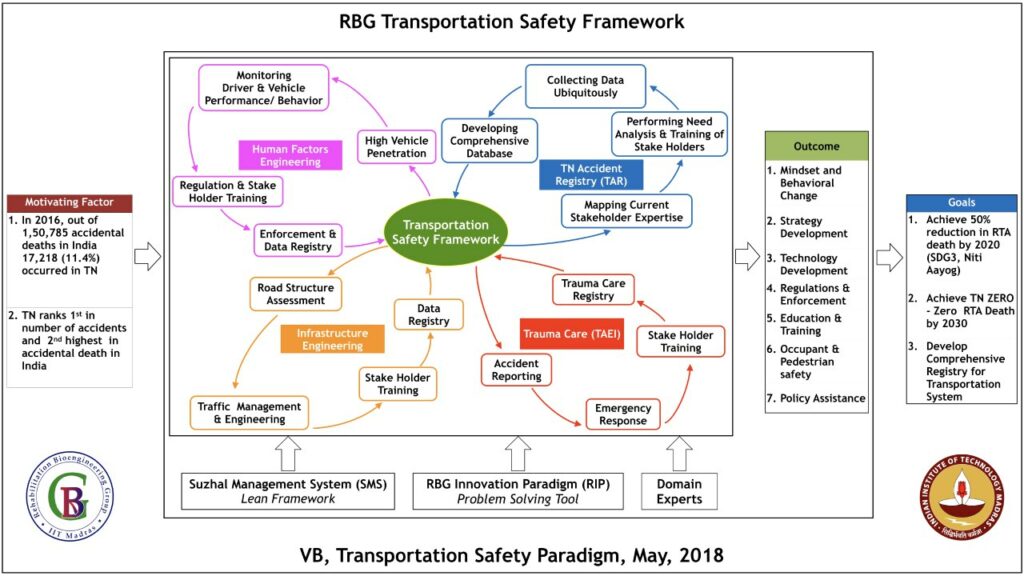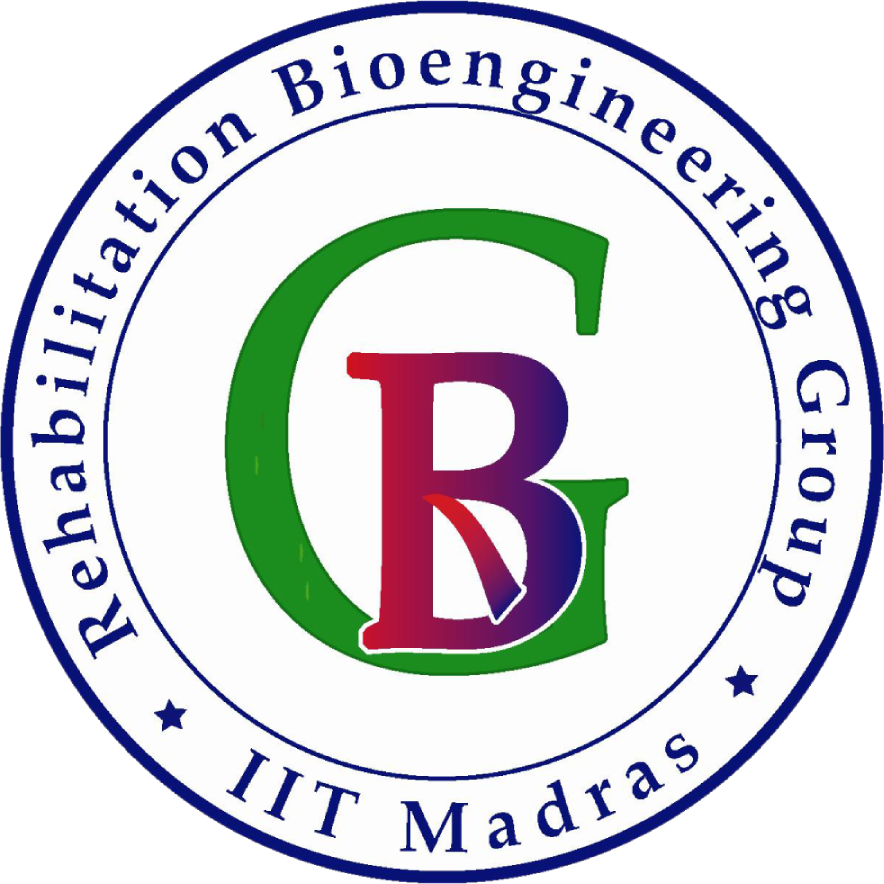To facilitate the 5 elements of road safety, a transportation safety framework was designed by RBG Labs, spanning across four dimensions, namely, Human Factor Engineering, Infrastructure Engineering, Trauma Care – Tamil Nadu Accident and Emergency care Initiative (TAEI) and TN Accident Registry (TAR). The motivating factor to have undertaken this strategy is the number of accidents that occurred in Tamil Nadu. As per NCRB 2016 report, Tamil Nadu accounts for about 10% of the national value on accidental death. Interestingly, TN ranks 1st in the number of accidents and 3rd in accidental deaths. Government of India (GoI) is implementing Sustainable Development Goal 3 (SDG3) to reduce the number of deaths by 50% by 2030 and pursue an aspirational goal of ZERO death by 2040.

The Transportation Safety Framework is a data-driven approach towards reviewing the policy framework, strategy development, regulation and enforcement of various stakeholders, education and training, restructuring road capacity and infrastructure, vehicle and road safety enforcement and vehicle regulations. The framework was designed to work towards the outcome which can be classified into the following seven categories :
- Mindset and behavioral change
- Strategy development
- Technology development
- Regulations and enforcement
- Education and training
- Occupant and pedestrian safety
- Policy Assistance
Suzhal Management System (SMS) and RBG Innovation Paradigm (RIP) are scientific tools developed by RBG labs that will be used in operationalizing and monitoring the dimensions of the above framework. These tools were extensively validated both in the lab and in practice at various industries and administrative functions in the Government. Their advantages include agility, fidelity, robustness, and ease of implementation. Improvements that have been brought about are process cost reduction; the cost of poor quality; process optimization; manpower optimization; efficiency improvement; downtime reduction; consumable cost reduction and new product development.
In Tamil Nadu, Transportation Safety Framework (TSF) is used as an active intervention in the peri and post-crash zone. A unique trauma care program called Tamil Nadu Accident and Emergency Initiative (TAEI) was developed using the principles of lean manufacturing. TAEI, system worked from peri and post-crash by enhancing both capacity and capability of the stakeholders in the Ministry of Health and Family Welfare (MoHFW). There are about 80 TAEI centers spread across Tamil Nadu to provide appropriate care in the shortest possible time to the victim.
Key Research Area
Human Factor Engineering
Human Factor Engineering, most complex of all engineering, focuses on behaviour of humans and their interactions with environment, devices and equipment. The last ten years witnessed a huge growth in the number of on-road vehicles in the cities and villages. However this surge needs to be caught up with the development of policies and infrastructure to prevent higher rate of accidents. The major causation of these accidents were due to driver error, which makes imperative to study and understand the driver and vehicle performance while monitoring their behaviour on the field. The project areas also focus on the regulatory and enforcement aspects that are currently in place identify the stake holder training needs and provide them. In addition, the project also focuses on developing a data registry to record all these information.
Infrastructure Engineering
Infrastructure Engineering, includes assessment of present road structures. This assessment includes reviewing existing road capacity to vehicle growth rate, engineering aspect of road design such as center median, culverts, crash barriers, bridges, bypasses, drains, service roads, etc. The project also focuses on traffic management and engineering, encompassing traffic control officers, signal controls, decongestions and vulnerability of traffic accidents. This project also focuses on stake holder training for skill building and data registry to gather data.
Trauma Care (TAEI)
Trauma Care (TAEI), focuses on providing resuscitation, victim stabilisation after an accident occurs and triage for further action. The project also focuses on providing a platform to report the accidents and help in reducing the response time to give emergency care.This requires skilled people to respond immediately to the emergency situations in providing first response to the victim. The project also aims towards improving these skills of the stake holders through structured training programs. Efforts have been taken by our lab to develop a comprehensive data recording of emergency care at 64 hospitals. We have developed a mobile and web application to capture thisdataat source from the 64 hospitals. The data are collected on the aspects of accident reporting, post mortem, Inter Facility Transfer (IFT) and ambulance services (108).
TN Accident Registry (TAR)
TN Accident Registry (TAR), focuses on mapping current stake holder expertise, perform training need analysis, identify the stake holders to provide training, collect data and develop a comprehensive database. TAR will be an extended service for Emergency care. Scientific tools developed in the RBG lab and extensively validated both in lab, and in practise in industry and admistrative functions in Government, such as, Suzhal Management System (SMS) and RBG Innovation Paradigm (RIP) will be used to operatinalize the factors that are listed.
